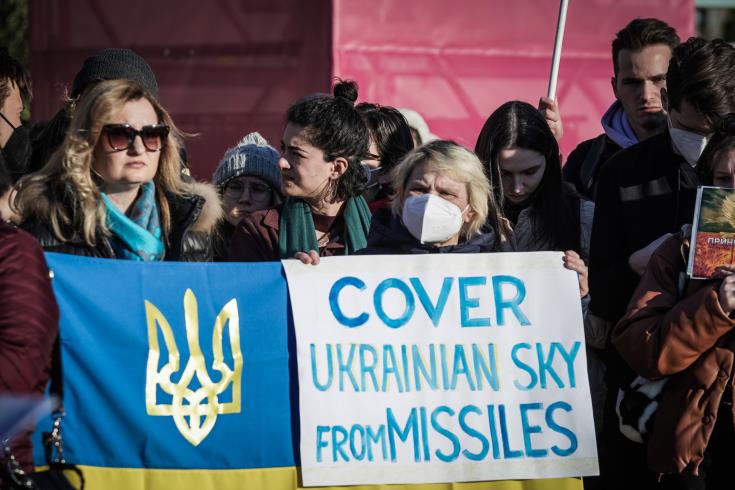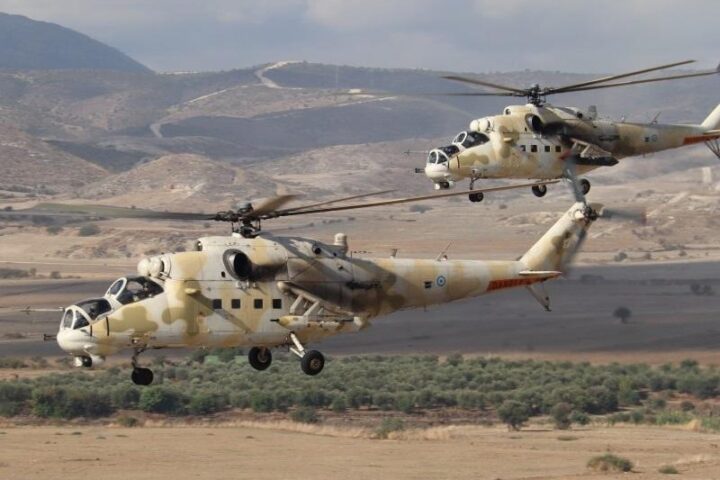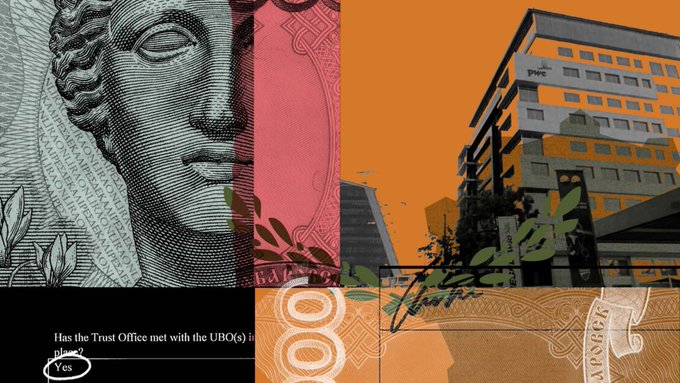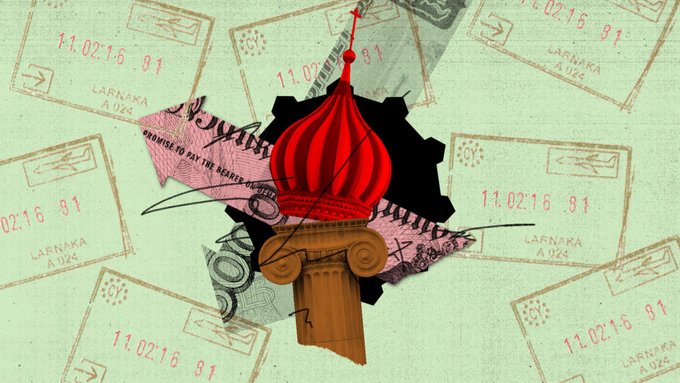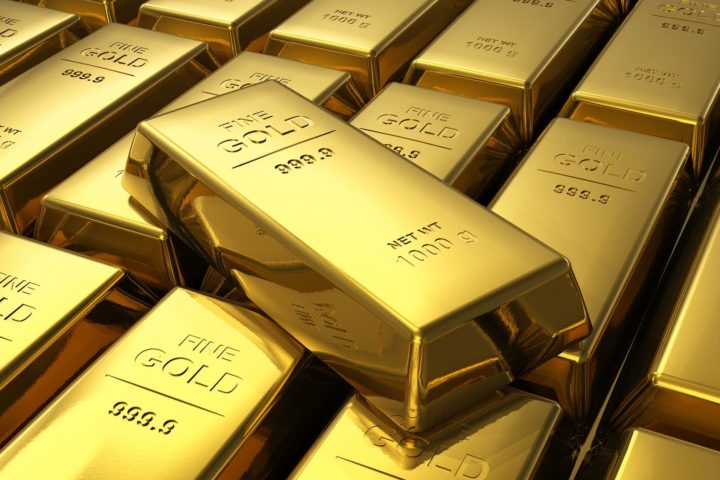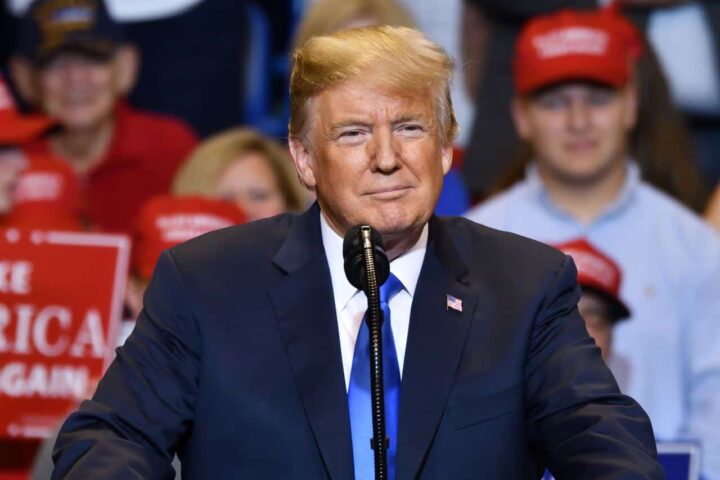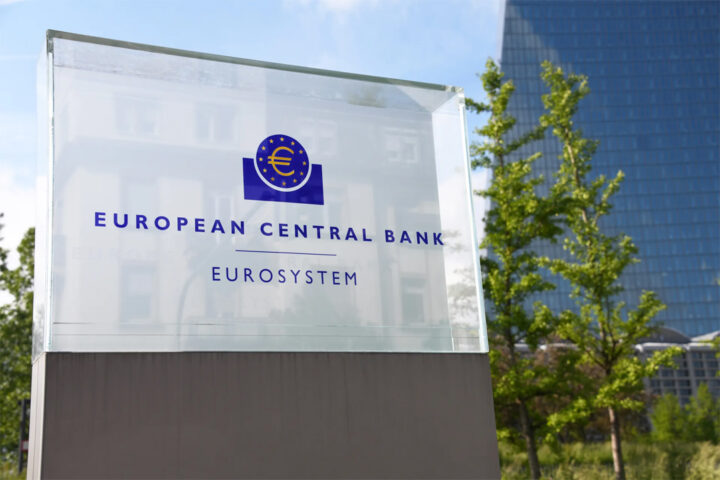Dressed in the blue and yellow colours of the Ukraine flag and bearing posters crying “No World War 3”, hundreds of thousands of people descended on the streets Sunday in solidarity with Ukraine as it battles the invading Russian army.
From Berlin to Baghdad to Quito, demonstrators chanted “shame” against Russian President Vladimir Putin, while others waved banners with slogans like “Putin murderer” or “stop the monster”.
In the German capital, police estimated turnout at least 100,000, while Prague drew 70,000 and Amsterdam 15,000.
Organisers of the Berlin protest put the numbers at five times the police estimate, with demonstrators massing at the Brandenburg Gate, a stone’s throw away from the imposing Russian embassy on major boulevard Unter den Linden.
Although the embassy — in which Russian diplomats not only work but live — was cordoned off by police, some protesters gathered in front shouting “glory to Ukraine” and singing Ukrainian songs.
“It is important to me for Germany to show that it is standing for democracy in Europe,” said Hans Georg Kieler, 49, who had turned out at the demonstration.
He voiced approval for Germany’s decision to begin delivering armaments to Ukraine, but said he thought “we could have helped Ukraine more”.
Ukrainian Valeria Moiseeva was also at the march.
“I am personally disappointed by Russia, I hate Russia, I hate all Russians,” the pregnant 35-year-old said, adding that her mother was now sitting in a cellar in Kyiv in fear of bombs.
She said she had to be at the demonstration because “I can’t do more than that”.
‘Madman’
In Prague, tens of thousands gathered at the central Wencleslas Square, including Roman Novotny, who had to travel around 300 kilometres (186 miles) to get to the protest from Uherske Hradiste in the southeast of the country.
“We all have to do our best,” he told AFP, carrying a banner slamming Putin. “It’s a difficult situation because the madman has nuclear weapons. I think he has cut himself off from the entire world, totally.”
Nineteen-year-old student Eliska Lipkova, with her braid tied with blue and yellow ribbons, said the strong mobilisation may be “because we have a similar and rather recent experience, we were in a similar situation,” referring to the 1968 invasion of Czechoslovakia by Soviet-led armies.
Meanwhile, in Lithuania, Belarussian opposition leader Svetlana Tikhanovskaya led a few hundred of her countrymen in protest against the Minsk regime for allowing Putin’s army to use the country as a launchpad into Ukraine.
Chanting “Long live Belarus” and “Glory to Ukraine”, they said they wanted the world to understand that ordinary Belarusians do not support the attack on Ukraine.
“Our Ukrainian brothers would not forgive us for our silence,” Tikhanovskaya, who lives in exile in Lithuania, told reporters.
She urged the West to impose “the strongest possible sanctions” on the Minsk regime.
Voicing shame at Belarus strongman Alexander Lukashenko’s actions, Sergei Bigel, a 39-year-old transport worker, told AFP: “This is a disgrace to the whole world. It is like stabbing a friend in the back.”
A women’s protest also massed near the Russian embassy in Vilnius, with people holding banners like “Putin = killer” and “See you in hell”, while others brought wreaths.
Ruta Januliene, 37, called the war in Ukraine “pointless” and said she was concerned for “the future and safety of children” there.
“It is hard for me to speak, it hurts a lot. I would like Putin to shoot himself and end all of this,” she said, sobbing.
“Our family is ready to help Ukrainian mothers and provide shelter,” said Sonata Lebednikiene, a 43-year-old civil servant.
© Agence France-Presse

